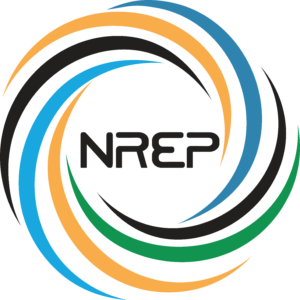On 9th July 2025, Nyendo town in Masaka hosted a clean cooking event with the aim to educate the public about the benefits of switching to cleaner cooking options, such as reduced fuel costs, improved health, and environmental conservation. It was the launch of the Behaviour Change Communication for Electric Cooking (BCCeC) Project in Nyendo Spearheaded by the National Renewable Energy Platform (NREP) in collaboration with the Ministry of Energy and Mineral Development (MEMD) and the Uganda National Alliance on Clean Cooking (UNACC) together with support by UK Aid through the Modern Energy Cooking Services (MECS) program.
The launch took place during a lively weeklong clean cooking exhibition held at Nyendo market, from 7th to 12th July, 2025. The BCCeC Project represents a significant move within Uganda’s national strategy to transition households and institutions from traditional cooking practices, such as the three-stone fire, to safer, cleaner, and more efficient electric cooking solutions.
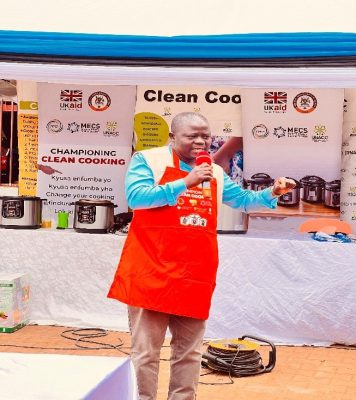
Maria Kiiza described the electric pressure cooker as a transformative solution for clean cooking in households. She noted that the average household typically comprises five to six members, making the appliance ideal—even for larger families. As a powerful example, she referenced Ssanyu Babies Home, which successfully uses electric pressure cookers to prepare meals for over 100 children. This, she explained, demonstrates the potential of innovative clean cooking technologies to improve health and reduce environmental impact. By adopting such solutions, households can significantly cut down on indoor air pollution while saving both time and money.
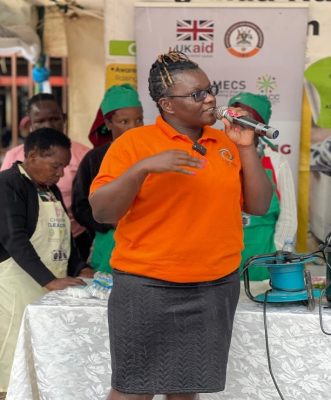
Key Challenges and Lessons Learned
The Deputy RCC of Masaka, Mr. Katumba Ssegawa, warmly welcomed and acknowledged the presence of institutional leaders and other distinguished guests. He emphasized the critical role of clean cooking, particularly through the use of Electric Pressure Cookers (EPCs), noting their efficiency in preparing quality meals quickly. Mr. Ssegawa called on the government to offer installment payment options or subsidies to enhance the affordability of EPCs. He also underscored the importance of expanding clean cooking awareness to rural communities and advocated for improved access to electricity in these areas.
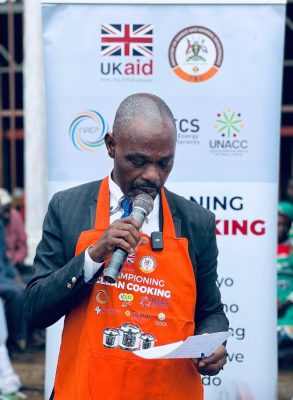
The Deputy RCC of Masaka, Mr. Katumba Ssegawa, not only delivered powerful remarks but also personally sampled food prepared using an Electric Pressure Cooker (EPC), affirming its quality and efficiency. He addressed the widespread misconception that firewood is a cheaper cooking option, explaining that, over time, it can actually be more expensive than electric alternatives. Mr. Katumba pointed out that the belief that electric cooking is costly remains a major barrier to adoption in many households. To counter this, he called for increased public awareness about the long-term benefits of EPCs. He encouraged households to embrace cleaner, more efficient cooking technologies and emphasized the importance of government and stakeholder support through incentives and motivation to accelerate this shift.
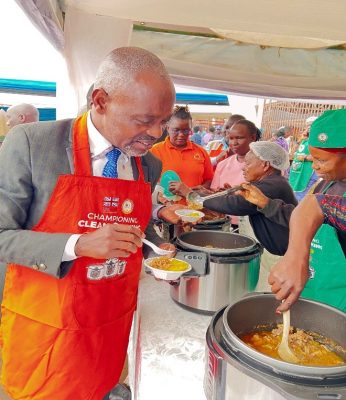
The Mayor of Nyendo, Mr. Mulindwa Musana, underscored the urgent need for environmental conservation, drawing attention to the devastating impact of charcoal production on Uganda’s tree cover. He illustrated this by noting that a single Muvule tree can yield up to ten sacks of charcoal—enough to fill a small Fuso truck and support a school’s cooking needs for a term—yet such a tree takes far longer than a term to grow. Mr. Musana expressed strong support for renewable energy and clean cooking initiatives, emphasizing their role in preserving natural resources. He called on institutions to take the lead in adopting clean cooking technologies and highlighted the unsustainable economics of wood fuel, pointing out that a lorry of firewood can cost approximately 1.8 million shillings, yet only serve short-term needs.
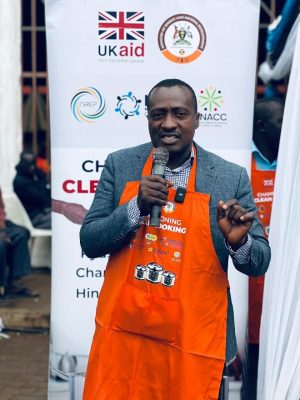
Major Challenges Identified by Participants
During the Clean Cooking Workshop held in Nyendo, Masaka, participants identified several key challenges hindering the adoption of clean cooking technologies. The most pressing issue raised was the limited access to electricity across many parts of Masaka, which significantly affects the uptake of electric cooking solutions such as Electric Pressure Cookers (EPCs). Participants emphasized that without reliable power supply, promoting electric cooking remains a challenge, especially in rural and underserved areas. Other concerns included the high upfront cost of clean cooking appliances, limited awareness of available technologies, and the need for stronger policy support to make clean energy more accessible and affordable.
Participants and Activities During the Workshop/ Outreach campaign
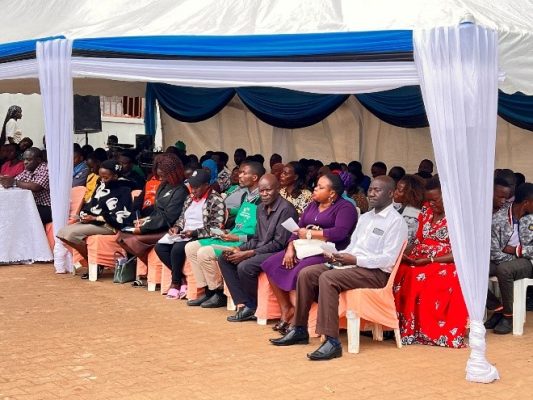
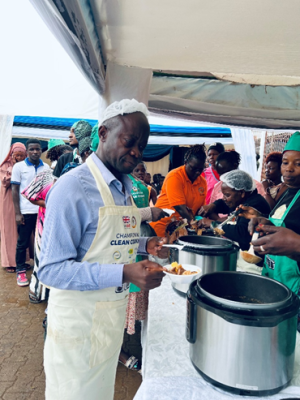
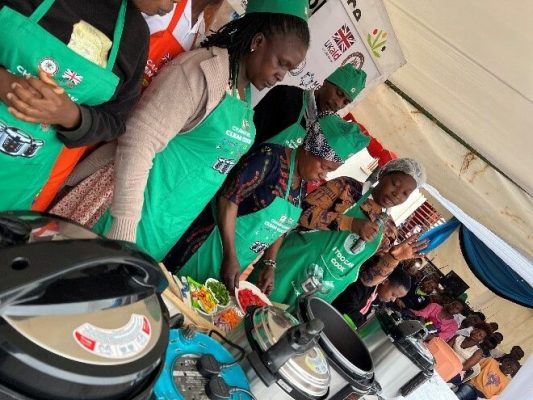
Conclusion
The launch of the BCCeC Project in Nyendo Masaka highlighted the urgent need to promote cleaner and more sustainable cooking methods. Participants raised key challenges, especially the lack of electricity in many areas, but also showed strong interest in adopting clean cooking solutions. Leaders and community members agreed that more awareness, better access to electricity, and support from government and partners are needed to make clean cooking a reality for all. By engaging communities directly, sharing knowledge, and demonstrating technology, stakeholders are not only advocating change but equipping people to act.


